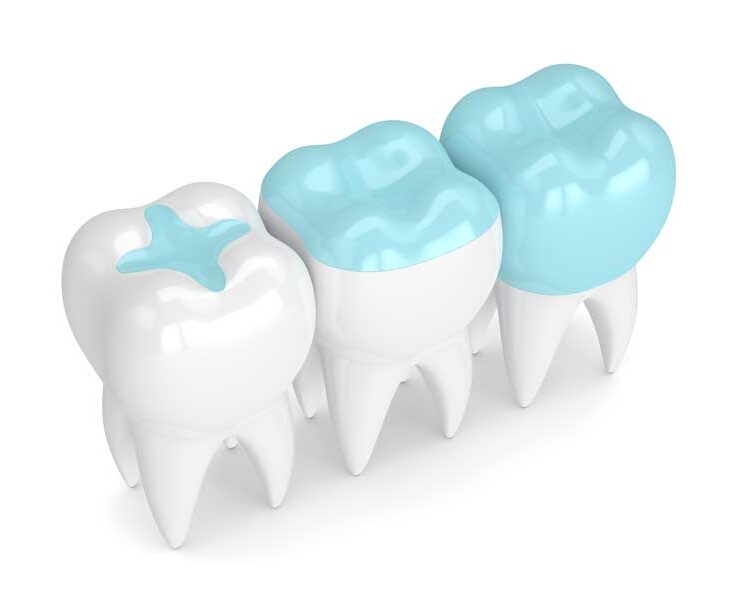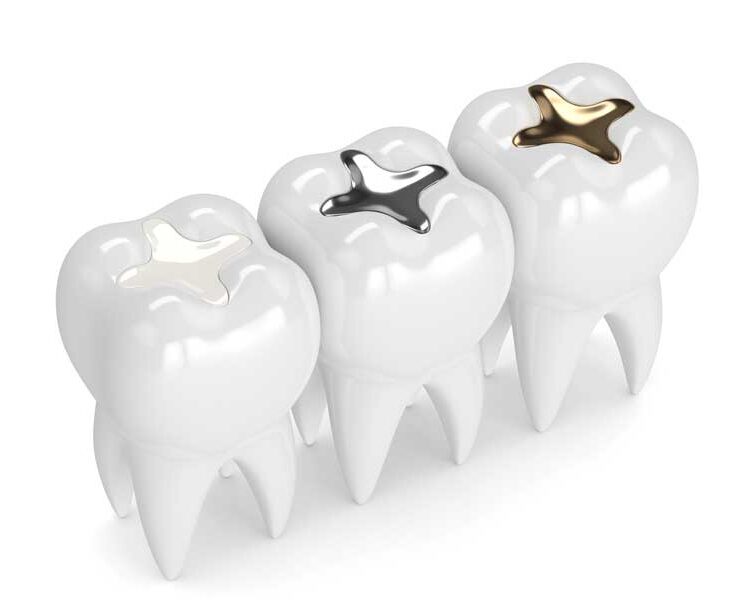BUILT TO LAST
Porcelain Fillings
For healthier, whiter teeth that make you smile
Porcelain fillings are a colored agent for teeth that protect them from standard bacteria that destroy tooth enamel. The fillings maintain and protect the teeth and help them look white day after day. The white, natural fillings are virtually unnoticeable, as they blend with the other teeth and give the patient a radiant smile. Porcelain fillings are considered a healthier choice and are less vulnerable to developing cavities in the teeth.

Durable
Porcelain is compact and strong ceramic; harder than natural enamel.Invisible
Tinted to match any shade of natural teeth so it is unnoticeable.Chemically Stable
Never prone to contracting or expanding under extreme temperatures.Wear Resistant
When bonded with metal, they always maintain their shape and sizeCUSTOM MADE
Superior Porcelain Fillings
Types of Fillings (Inlays/Onlays)
Custom-made, like a miniature or partial crown, porcelain fillings match the natural color of teeth and are stain-resistant, offering a durable and aesthetic solution.

Porcelain Inlays
Used for smaller cavities or damage within the cusps (peaks) of a tooth. Custom-made to fit into the prepared cavity, offering a precise and aesthetic solution.
Porcelain Onlays
Used for larger restorations that cover one or more cusps of the tooth. Sometimes referred to as "partial crowns," they provide extra strength for heavily damaged teeth.
COST-EFFECTIVE TRUST
Standard Types of Fillings
Amalgam Fillings (Metals/Silver)
Made from a mixture of metals, including silver, mercury, and tin, these are durable and cost-effective but less aesthetic due to their silver color.
Composite Fillings (Resins)
Made of a tooth-colored resin material, they blend well with natural teeth and are ideal for visible areas. These may not be as durable as metal fillings for large cavities.

Benefits of Porcelain Fillings
Pro's
-
Aesthetic Appeal: Porcelain fillings closely match the natural color of teeth, making them an excellent choice for visible areas.
-
Durability: Resistant to staining and wear, porcelain fillings can last 10–15 years or longer with proper care.
-
Non-Toxic: Made from biocompatible materials, they are safe and free from mercury or other potentially harmful substances.
-
Custom Fit: Precisely crafted to fit the tooth, ensuring a snug and secure restoration. This superior fit lowers the possibility of future decay.
-
Preserves Tooth Structure: Minimally invasive preparation often allows more of the natural tooth to be retained compared to amalgam fillings.
-
Resistant to Temperature Changes: Porcelain expands and contracts less with temperature changes, lowering the risk of cracks or tooth sensitivity.
-
Strength: Strong and capable of withstanding significant chewing and biting forces.
Con's
-
Cost: These are a bigger investment compared to other filling options, such as amalgam or composite resin.
-
Time-Intensive: May need multiple visits if the filling is fabricated in a lab; same-day options (CEREC) may not be available everywhere.
-
Brittle: While durable, porcelain can be brittle and may chip under extreme pressure or if used improperly (e.g., biting hard objects).
-
Complex Installation: The bonding process for the filling is more complex. This will require a skilled dentist like Dr. Corral to ensure success.
-
Not Always Covered by Insurance: Some dental plans may not fully cover porcelain fillings, leaving patients with higher out-of-pocket expenses.
-
Size Limitations: Porcelain fillings may not be ideal for very large cavities and decay, where other materials can offer better structural tooth support.
-
Potential Sensitivity: In some cases, patients may experience short-term tooth sensitivity after the procedure.
REQUEST AN APPOINTMENT
Fill out the form and we will contact you to schedule your FREE oral health consultation or call 1-844-220-8300.

